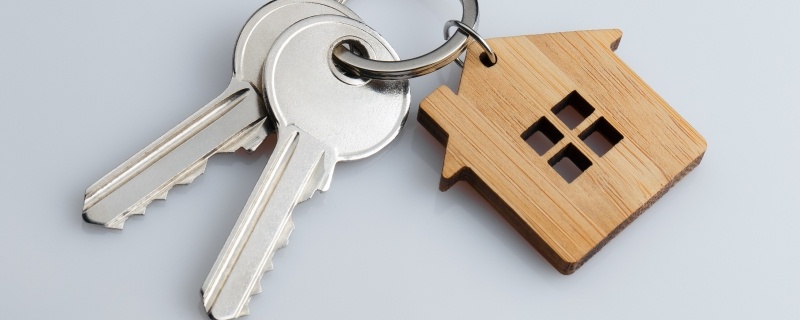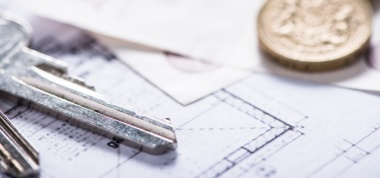Frequently Asked Questions: House Sales and Purchases

How long will it take?
In general, sales and purchases take between 8 and 12 weeks. If there is a chain of sales and purchases then everyone in the chain must exchange contracts and complete on the same day. This means that a delay in completing one link in the chain will delay the rest of the chain.
What are the most common reasons for delays?
The most common reasons for delays are:
- Obtaining search results.
- Information from other solicitors and from managing agents for leasehold property.
- The issue of mortgage offers.
Are your fees fixed?
Our fees will be as quoted to you unless significant additional work is required. This may be required for example if:
- There are legal issues that we could not have foreseen when we issued our quote;
- You and the other party agree that there should be simultaneous exchange of contracts and completion, or completion within a very short time after exchange of contracts;
- You and the other party agree that you are to be allowed to occupy the property between exchange of contracts and completion and that arrangement has to be documented;
- There are issues with your mortgage offer.
Will I have to pay any additional third party costs?
We try to anticipate the costs payable to third parties when we issue our quote. Sometimes these may vary from those anticipated when we issued our quote, for example:
- There are additional fees payable to managing agents or landlords of leasehold property to provide information, deeds, or certificates required for the transaction;
- There are gaps in the legal title to the property or the information that is available about it that need to be filled by insurance polices from specialist insurers. These policies are issued on a case by case basis and we will advise you of the premium if they are necessary;
- Other situations specific to your transaction.
Why do you need to verify my identity?
We are obliged to verify the identity of all our clients. We cannot act for you unless you complete the verification process either online or in person.
Do I need a survey?
We always advise clients to have their own survey carried out before exchange of contracts. Please contact a local surveyor to have this done.
If you are getting a mortgage, your lender will have a valuation carried out but this is only an assessment for their benefit alone that the property would be sufficient security for the mortgage advance. In some cases they may not even inspect the property but simply verify that it exists.
I am selling my home, how should I complete the Property Information forms?
Copies of the Property Information forms that you complete will be sent to your buyer's solicitors after we have checked them. Your buyer's solicitors will pass them on to your buyer. You must answer the questions truthfully as your buyer will be entitled to rely on the information you provide.
If you do not know the answer to any of the questions, either tick the box to answer "not known" or write on the form that you do not know. If you need to provide additional information please let us know.
I am buying a new home, how important are the seller's answers on the Property Information forms?
You are entitled to rely on the seller's answers to the questions on the Property Information forms.
We will check the seller's answers, but if any of the seller's answers are not clear, or you want more information please let us know.
Why do you need to know where the money is coming from for my purchase?
We are obliged to comply with regulations to combat money laundering. We cannot act for you unless the source of the funds you are using can be verified.
Part of my money to buy the property is a gift from a relative or friend. Do they need to be involved in my purchase?
We will ask them to sign a declaration that the gift to you is an absolute gift and not a loan, that they are not insolvent, and that they will not make themselves insolvent by making the gift.
This is for your protection so that they cannot later claim to own a share in your property, or their creditors cannot claim back the gift if they become insolvent.
If you are getting a mortgage we will have to disclose the gift to your lender, unless you have already disclosed it in your mortgage application.
Do you have to disclose any other information to my mortgage lender?
If we are acting for your mortgage lender, which is usually the case, then if your circumstances change we are obliged to inform your mortgage lender.
Also, our searches and enquiries may reveal issues about the property you are buying that we need to report to your mortgage lender as it may affect their valuation of the property or their decision to lend at all.
If you ask not to reveal information of this kind to your mortgage lender we will have to cease acting for you.
Can my mortgage lender revoke their mortgage offer?
All mortgage lenders reserve the right to revoke mortgage offers in the event that there are irregularities with mortgage application, your circumstances change, or the searches reveal issues that mean they no longer want to lend on the security of the property.
If the mortgage offer is revoked before exchange of contracts you can try and obtain mortgage finance from another lender, or withdraw from the purchase. If you withdraw you will still be required to pay our fees up to that point.
Once contracts are exchanged you are committed to buy the property.
Rarely, a mortgage offer will be revoked after exchange of contracts. If this happens you will still be committed to buy the property. In that case your options would be:
- To try and persuade your mortgage lender to reinstate their offer.
- To try to arrange alternative finance. This may involve obtaining short-term finance from a specialist lender. This is likely to be significantly more expensive than a long term home purchase mortgage and you will have to pay additional legal fees to us and to the solicitors who may separately represent your new lender. If this results in a delayed completion you will have to pay interest, legal costs, and compensation to your sellers and if you are in a chain to the other parties in the chain.
- Abandon your purchase. In this case you would lose your deposit, and face claims for other losses from your sellers and other affected parties.
How much notice must you give my mortgage lender to send the mortgage money?
Most mortgage lenders require a minimum of 5 working days' notice. In practice this is a week, but may be longer if public holidays fall within this period.
How should I send funds to you?
We prefer to receive funds by bank transfer so that they arrive as cleared funds available for use on your behalf.
If you pay money to us by cheque we need to receive your cheque 7 days before we are likely to need the funds to allow time for the cheque to clear.
Can I sign documents electronically?
Normally documents must be signed with a traditional 'wet' signature and the paper originals must be in our hands before we can carry out the transaction.
If all the parties to a transaction agree, then electronic signatures can be used but the process is complex.
Not all documents can be signed electronically.
If we are sending documents to you for signature we will instruct you how they are to be signed.
Can I change my mind and not buy the property?
Before contracts are exchanged you are free to decide not to buy the property for any reason, or for no reason. You will still have to pay our fees for the work done to that point and any third party expenses that have been incurred for you. You will not have to pay the seller's costs.
After contracts are exchanged you are committed to buy the property. If you decide not buy the property the seller could obtain a court order to force you to complete the purchase and if you do not you will lose your deposit and face other substantial claims. You will have to pays the seller's legal costs which could be very substantial.
Can I change my mind and not sell the property?
Before contracts are exchanged you are free to decide not to sell the property for any reason, or for no reason. You will still have to pay our fees for the work done to that point and any third party expenses that have been incurred for you. You will not have to pay the buyer's costs or their third party expenses.
After contracts are exchanged you are committed to sell the property. If you decide not sell the property the buyer could obtain a court order to force you to complete the purchase and if you do not, you will have to repay their deposit and face other substantial claims. You will have to pays the buyer's legal costs which could be very substantial.
What happens when contracts are exchanged?
We normally have a formal telephone conversation with the seller's solicitors in which we read through the contract, confirm the amount of the deposit and the completion date and agree that contracts are exchanged from a precise time.
We and the solicitors acting for the seller then send each other the copies of the contract signed by the buyer and the seller.
We will tell you by phone, email and/or letter that contracts have been exchanged.
What must I do when contracts are exchanged if I am buying?
- Insurance
If the property is freehold you must insure the property as it is at your risk from exchange of contracts.
If the property is leasehold and we have advised you that it is the tenant/lessee's responsibility to insure the property, then again you must insure the property.
If the property is leasehold and we have advised you that it is the landlord/lessor's responsibility to insure the property, then you do not have to insure the property.
- Arrange your removals.
- Contact utility suppliers at your new home to take over or set up new accounts.
- Notify your bank, credit card provider, mobile phone company, local council and anyone else that contacts you regularly that your address will change from the completion date.
- Arrange for Royal Mail to redirect your post to your new home from the completion date.
If you are moving out of rented accommodation:
- Give notice to your landlord to bring your tenancy to an end.
- Cancel your standing order/direct debits from rent and utilities from the end of your notice period.
- Check how to reclaim any deposit you paid to your landlord.
- Make arrangements to pay us any balance that we have advised you that we will need to complete your purchase.
What must I do when contracts are exchanged if I am selling?
- Arrange your removals.
- Contact utility suppliers to advise them that you are moving out and find out their requirements to close your accounts.
- Notify your bank, credit card provider, mobile phone company, TV licensing, Doctor, Dentist, local council and anyone else that contacts you regularly that your address will change from the completion date.
- If you have a mortgage, cancel your direct debit so that your payments stop after completion.
- Send us details of the bank account where we are to send to you any balance from the completion money.
What do we do between exchange of contracts and completion if you are buying?
- Send final enquiries for completion information to your seller's solicitors.
- Prepare your Statement of Account showing what money we need from you to complete your purchase.
- Carry out searches at the Land Registry which creates priority to register your purchase and your mortgage.
- Request your mortgage advance from your mortgage lender.
- If you are buying from a limited company carry out a search at the Companies Registry.
What do we do between exchange of contracts and completion if you are selling?
- Prepare a completion statement of the money required from your buyer to complete the sale.
- Send replies to final enquiries for completion information to your seller's solicitors.
- Request a statement from your mortgage lender of how much they require to repay your mortgage on the completion date.
- Prepare your Statement of Account showing what money will be repayable to you after completion, or carried forward to your own purchase.
- Carry out searches at the Land Registry which creates priority to register your purchase and your mortgage.
- Request your mortgage advance from your mortgage lender.
What happens on completion day if I am buying?
If our searches are clear and we have all the funds we require then:
- We pay the required money to the seller's solicitor.
- They acknowledge receipt of the funds and release the keys, usually from the estate agents who negotiated the sale.
- We telephone or email you to let you know that the property is yours.
- You collect the keys and move in to your new home.
What happens on completion day if I am selling?
- You move out of your home.
- We acknowledge receipt of the funds and release the keys, usually from the estate agents who negotiated the sale.
- We date the Transfer Deed and send it to the buyer's solicitors together with any other deeds and documents.
- We telephone or email you to let you know that the property is sold.
- We repay your mortgage, and any other debts to be paid out of the proceeds of sale.
- We pay the estate agent's commission.
- We take our fees from the proceeds of sale.
- We pay the balance of the proceeds of sale to you or carry them forward to your own property purchase.
What do we do after completion of a purchase?
- We file your Stamp Duty Land Tax Return and pay any stamp duty.
- We file the application at the Land Registry to register you as owner and to register the mortgage over the property.
If your property is leasehold we also:
- Serve notice of your purchase on your landlord/lessor/ managing agent.
- Send a copy of any required deed to your landlord/lessor/ managing agent.
- Register the transfer of your share in a residents' management company, if any.
- Pay any required fees to your landlord/lessor/ managing agent.
What don't we do?
We only deal with issues concerning the legal title to your property, in particular we do not deal with:
- Tax advice
We only deal with Stamp Duty Land Tax. We do not provide advice on Capital Gains Tax, Value Added Tax, or any other tax as part of the conveyancing process.
- Advice on the condition of property and valuation.
Please contact a qualified surveyor, structural engineer, or valuer if you need advice on these issues:
- Transfer and Change of Utilities;
This is for you to deal with.
- Removals;
These are for you to arrange.
- Schools;
We do not provide advice or assistance with change of or admission to schools.
- Parking;
If you require a parking permit for to park on the street or in a private car park this is for you to arrange.
Protect your Property
If you already own a property, or are thinking or buying one, it is important to be aware of fraud risks. Click here to download a useful document which outlines four simple steps that can protect you and your property.
For more information or to book an appointment to discuss your individual circumstances in further detail, contact us today on 01603 693500 or email us using the 'Make an enquiry' form on our website.





